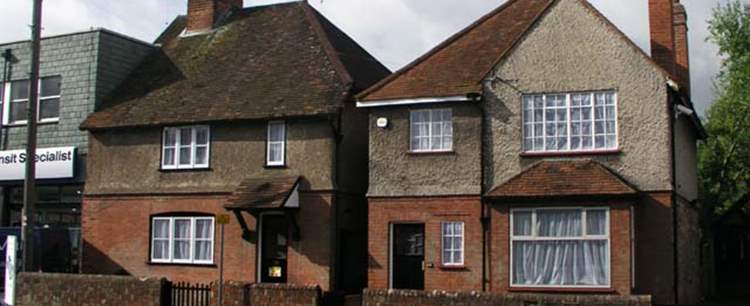If you read through the details of your Buy-to-Let Insurance policy, you may note that there are significant parts of it that relate to the risks that you and your property face as a direct result of having tenants living there.
These might include factors relating to accidental and malicious damage by tenants, the types of tenants that you can and can’t have in your property, and third-party liability issues.
Crucially, your policy will also outline your level of cover if your property sits empty for an extended period of time. Depending on the policy and length of unoccupancy, you may need to invest in Unoccupied Property Insurance.
Insuring an empty house: What you need to know
Your Buy-to-Let Insurance policy will only provide limited cover if your property is left empty for an extended period. Therefore, it’s important to check your policy wording and consider specialised insurance if necessary.
When it comes to insuring an empty house, here are a few important points to bear in mind:
Risks don’t diminish, they just change
It is generally inadvisable to assume that your property is safer from risk when it is empty than when your tenants are in occupation. Typically, the risks don’t diminish overall – they just change.
What this means from an insurance point of view is that if your property is standing empty for a prolonged period of time, your existing insurance cover may cease completely or only offer protection at a much-reduced level.
As such, if you want to ensure that your property stays adequately covered, then you may want to consider purchasing Unoccupied Property Insurance.
When to purchase Unoccupied Property Insurance
The point at which you might need to invest in Unoccupied Property Insurance will depend on the terms and conditions of your Buy-to-Let Insurance policy. For example, some may cease providing cover after 30 consecutive days of your property standing empty.
Here at UKinsuranceNET, we can provide Buy-to-Let Insurance policies that extend cover for up to 45 days and in some cases, 90 days.
We can also provide cover that takes into account the fact that your property may be empty when you first buy it and for some time after, while you carry out repairs and refurbishments.
Understand your responsibilities
If you have a Buy-to-Let mortgage, the conditions of your loan may require that you have Buy-to-Let Insurance in place at all times. It is therefore important you fully understand what you need to do if your property remains unoccupied for longer than your policy covers.
In terms of minimising risk when your rental property is empty, you may find that your insurance cover is subject to certain conditions. For instance, these could include requiring you to make regular inspections of the property and to carry out any necessary repairs.
Cover may also be conditional on having the electricity and water cut off to reduce the risks of fires or floods. Conversely, you may be asked to leave some heating on during the winter months to reduce the likelihood of water damage from frozen pipes that eventually crack and burst.
Insure an empty house with UKinsuranceNET
Buy-to-Let Insurance cover is not really all that complicated. It provides financial protection for your rental property and its contents in the event of a catastrophic event, like fire or flooding.
It also covers loss of rent if the insured peril then renders your rental property uninhabitable while repairs are ongoing. Plus, it can give you liability protection from third-party claims of injury or loss on your property.
What it doesn’t cover is long periods of unoccupancy. Depending on your policy and provider, there is a danger that your policy could become invalidated if your property is vacant for longer than your insurer allows.
Therefore, it is essential to check the terms and conditions of your Buy-to-Let Insurance policy to ensure you understand the level of cover available if your rental property is likely to be empty for an extended period.
If it is likely to sit empty for a long time, it can be beneficial to invest in Unoccupied Property Insurance. This type of cover gives you the appropriate amount of protection, ensuring you won’t have to shoulder the financial burden of expensive repair costs or lost rent while remediation work takes place.
If you need to insure an empty house, UKinsuranceNET can arrange specialised cover from a range of insurers. Our experienced advisers can guide you towards the cover that is most appropriate for you and your circumstances.
For more information about Buy-to-Let Insurance and Unoccupied Property Insurance, or to discuss your requirements with an adviser, please don’t hesitate to contact us on 01325 346328.
NB: This blog was first published on 3 November 2020 and has since been updated to provide the most accurate and up-to-date information available.







